Attaquas Kloof Pass is the earliest recorded route linking the coastal area to the “Channa Land“ (Klein Karoo) across the Outeniqua mountains.
In 1668 an official of the VOC (Dutch East India Company), Hieronymus Cruze, led a trading company in the area. They investigated the possibility of a harbour in Mossel Bay. Cruze had contact with the Attaqua Koi “who lived in a mountain valley” (Attaquas Kloof), but it was not till 1689 (37 years after the arrival of Jan van Riebeeck) that the first white man stuck his nose over the Attakwas Pass into the Klein Karoo.
Isaac Schrijwer traveled along the coast to Mossel bay looking for cattle and sheep to buy. He remembered Cruze's report about the Attaqua Koi, but found that they had moved North into the Channa Land search of better grazing. He followed them out of the Kloof over the mountains following an elephant track. The area was densely overgrown and the elephant track had to be widened to take the wagons. This involved quite a bit of manual labour and the crossing took them seven days, four of which on this small section.
We finished so late the day before we could not cross Attaquas Pass, so we had to return for this leg of our expedition. Sadly Gryph could not join us today, so on this leg it would be just Kane and myself in the Arctic Hilux.
We start this section where we ended the previous day, on Bonniedale Adventure Farm where we obtain our permits and gate keys. This route runs through the Attakwas Nature Reserve and access is restricted.

Nico and Danette Hesterman of Bonniedale is very helpful though and up to date with the currant status of the route, as well as all the history attached to the area.
And as it should be, the easy-going nature of the route ends today. Out trip literally starts in a riverbed.


A short stretch of river driving, before we turn up the bank and onto some fine river sand. No match for the massive wheels of the Arctic Toyota though.

Next you are faced with a steep rocky climb. Being on four wheels this time round it seemed a much less daunting task than when we were here last with our Trail Bikes.
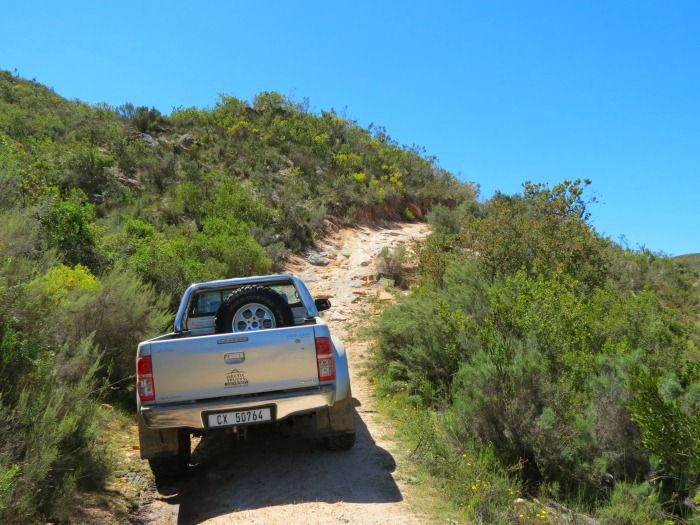
It's a steep climb nonetheless!
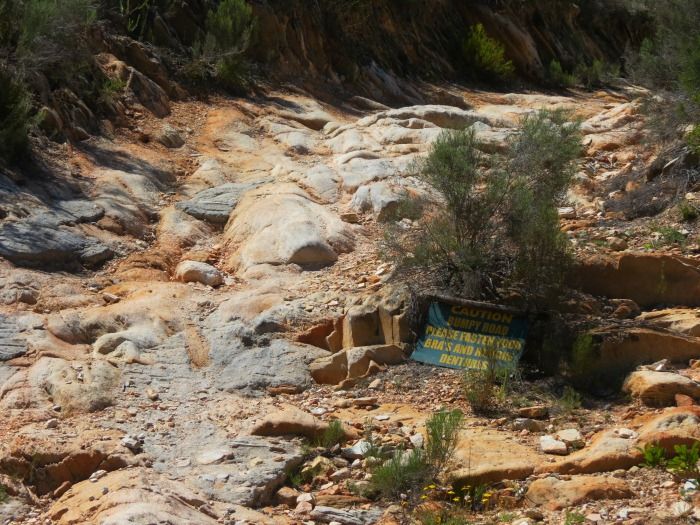
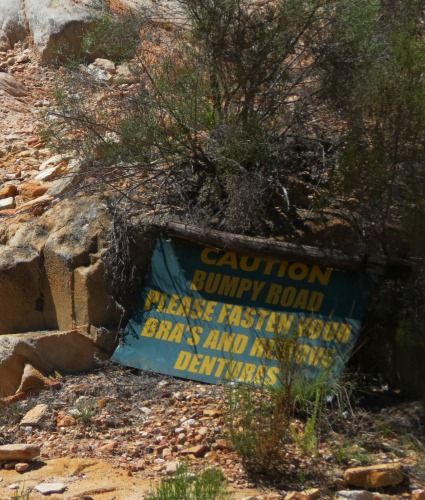
Unfortunately you can't see the true gradient of this climb on the photos (as usual), but the rock is sure underfoot and gives good traction.

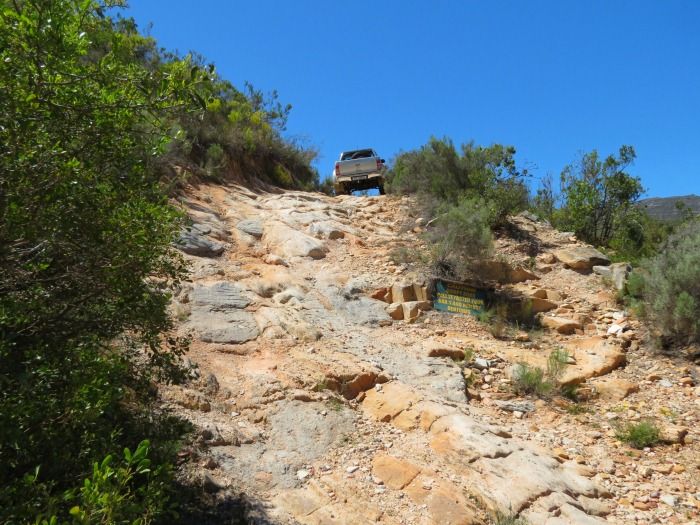
That is not the case on the next section though:


I remember all to well battling up this hill on the motorbikes, one wheel drive with limited traction. It was fun, but also hard work. To the huge footprint of the Arctic 4x4 a hill like this is almost a non-event. Being a biker this almost feels like cheating.


With 290mm ground clearance you don't even have to choose a line. You just crawl up and over whatever is there.

Good articulation ensures that you have traction all the time. Inside the vehicle I was completely oblivious of what was happening underneath, until I saw these photos later.

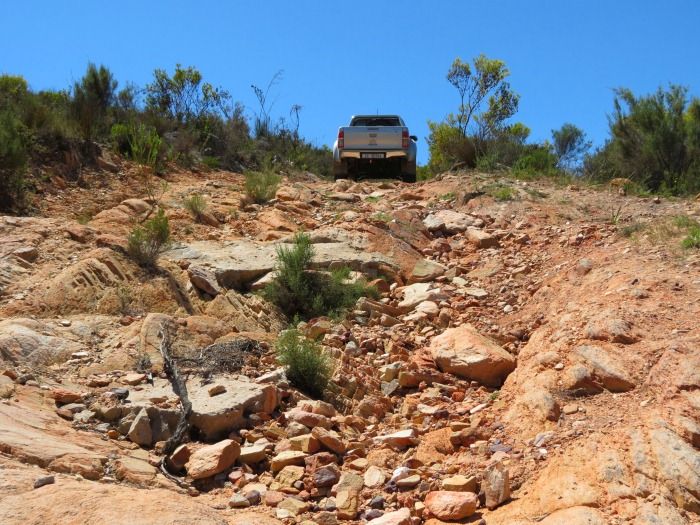
On top the track is in good condition and the route well marked. Time to relax and take in the scenery.

The first European to settle on Bonniedale Farm was a Scotsman in 1860. He had a toll concession to maintain the pass from Bonniedale to the summit of the Attaquas mountains. He also supplied mules, oxen and other produce to passing travellers. This was the Toll house on the right:
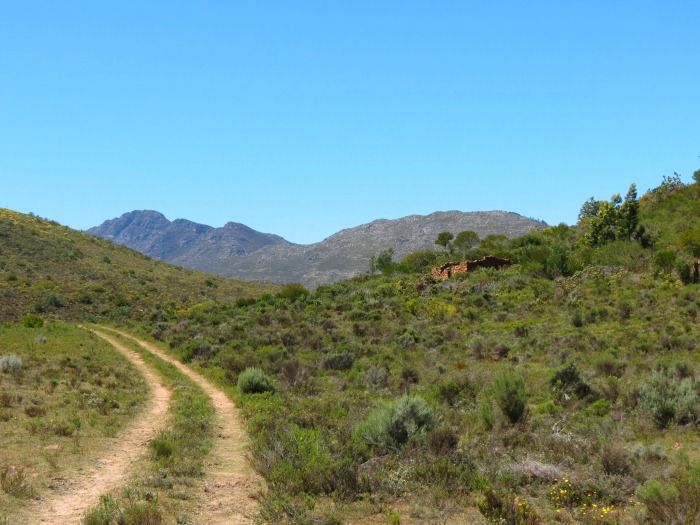

Beautiful scenery, good trail.
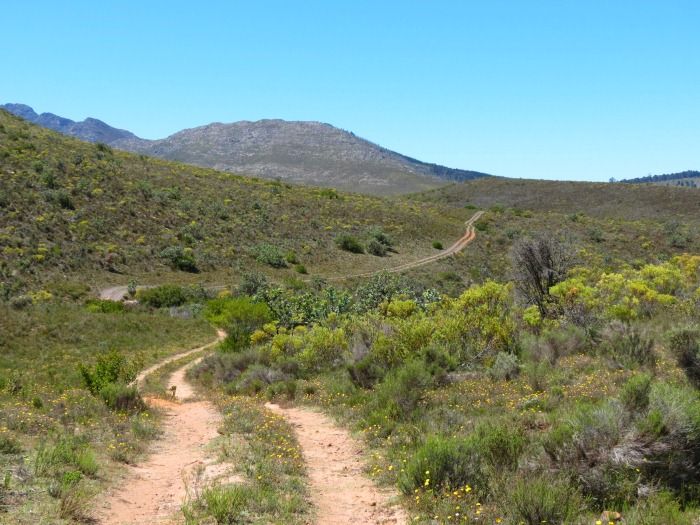
And just when you relax there's a little section that keeps things interesting.
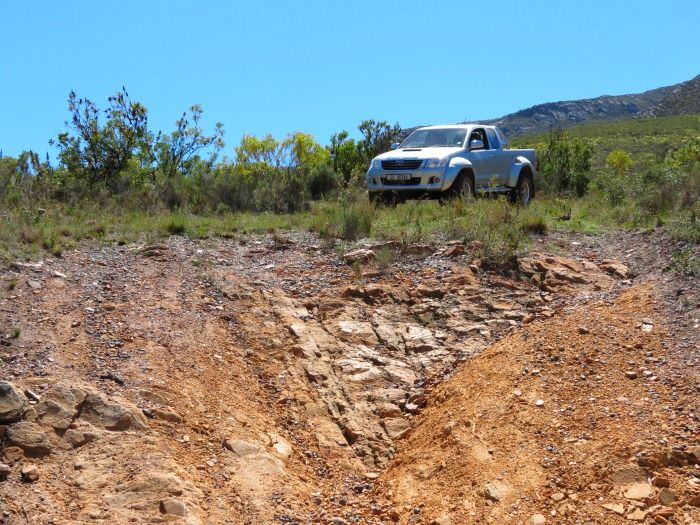
Once again you can not see the true gradient on the photo. I'm sure that for hard core 4x4 enthusiasts this is nothing, but we enjoyed it nonetheless.
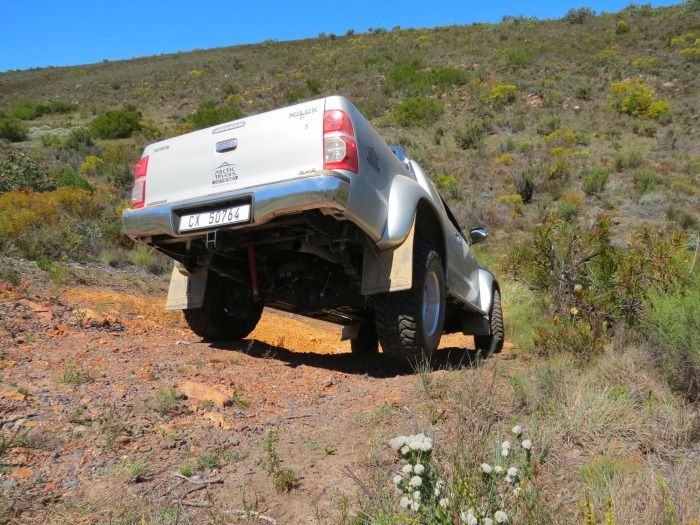
Getting one wheel in the air ever so slightly. That takes some doing in a truck like this.
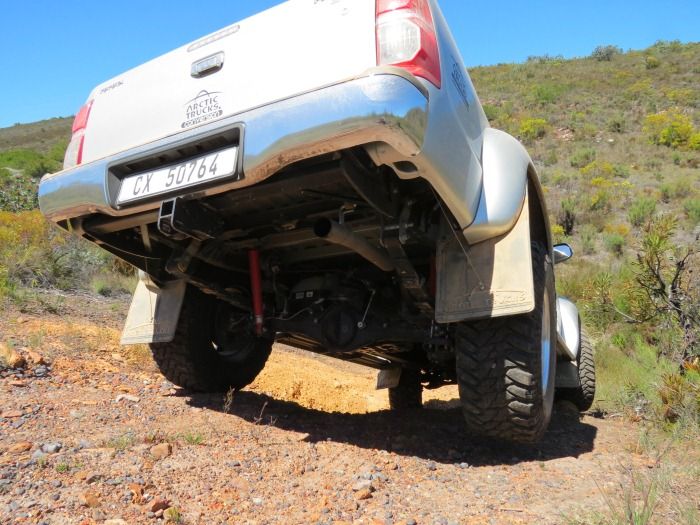

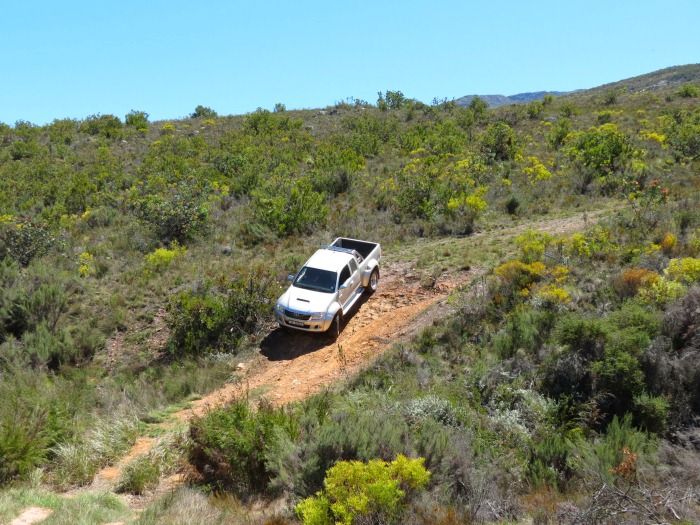
Some route guidence:

And the pass in the distance:
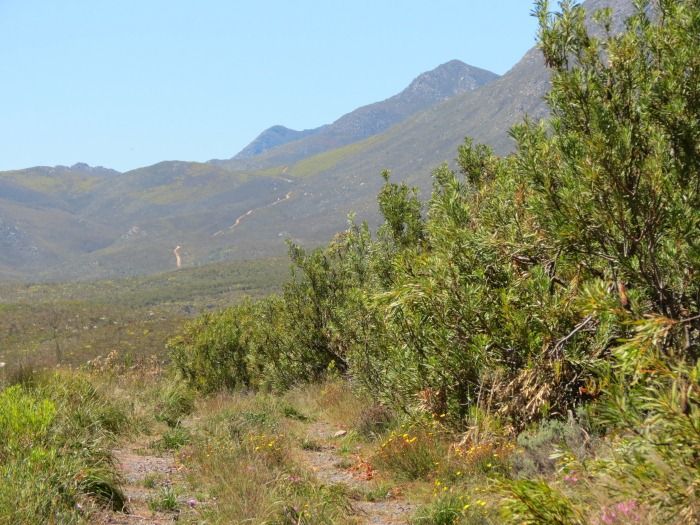
Going through a little kloof - I love the varying conditions and scenery:

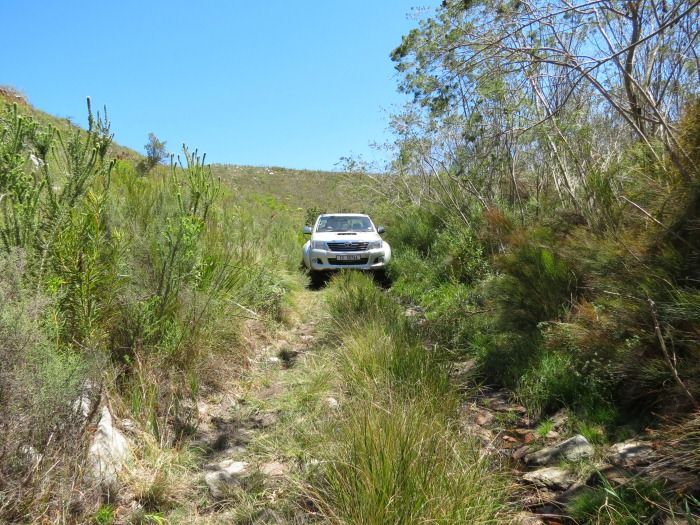
And arriving at the Attakwas Hut (also note the large tree):

This hut is used by hikers walking along the Attaquas Hiking Trail. It's also the spot of a commemorative plaque for Attaquas Kloof Pass.
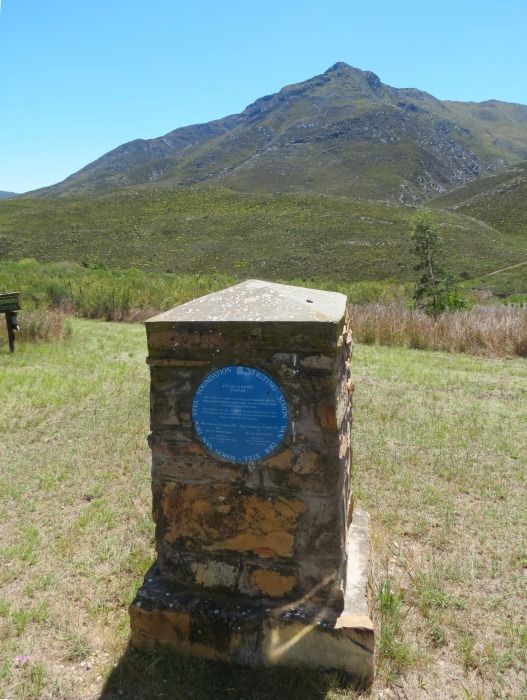

This happens to be the spot where the notorious Bloubaard Swanepoel is burried. He has an unmarked grave near the tree that was fenced off a while back, but the area is quite overgrown now and sadly we could not find it.
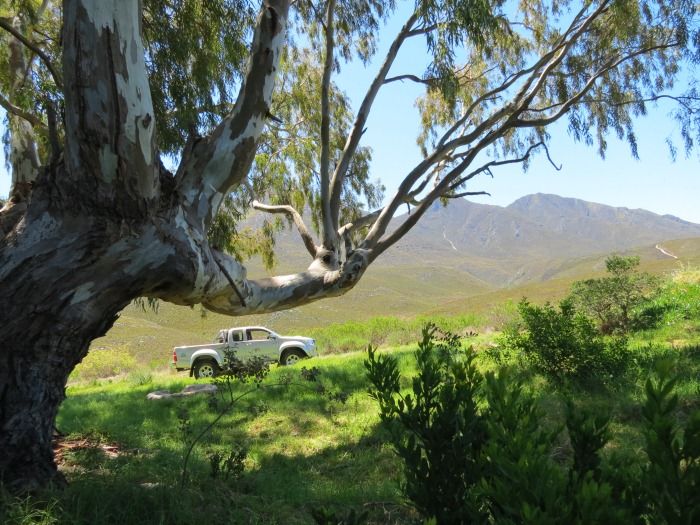
Bloubaard’s claim to fame was the fact that he was the last person to be publicly hanged in South Africa (on the town square in George).
He was convicted on numerous counts of murder of persons who had bought cattle from him. After the sale he would ride over the Attaquas Mountains and ambush them on their way out with cattle, kill them and take the cattle back. He did this on four occasions but on the fifth occasion he did not see one of his potential victims who had gone to the bush to relieve himself.
He is also believed to have killed numerous labourers who took out honey for him on the cliff faces of the upper Gouritz River. After having retrieved the honey from them he would push them off the cliff into a maalgat whirlpool in the Gouritz. As their bodies could never be recovered he could not be convicted on these charges.
A lot of blood flowed in Attaquas kloof. It's hard to marry that ugly truth to the natural splendour found here.
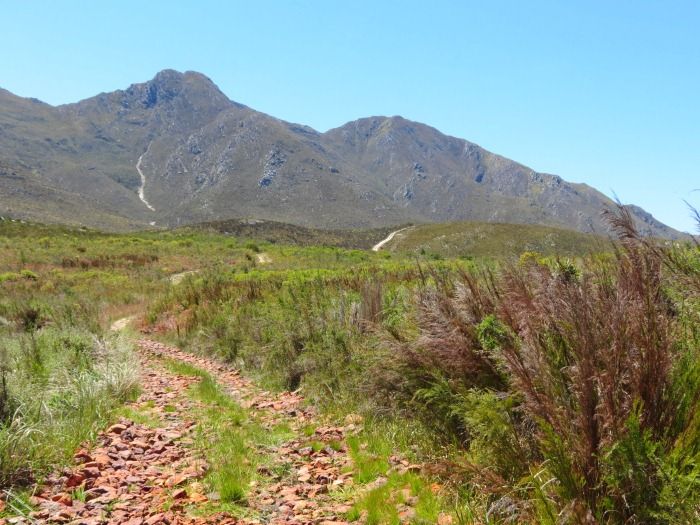
Not far along the trail we find this kraal made by planting Aloes. Oxen were kept safe in this kraal overnight. Amazing how this planted kraal remained in tact after all this time.

The road ahead:
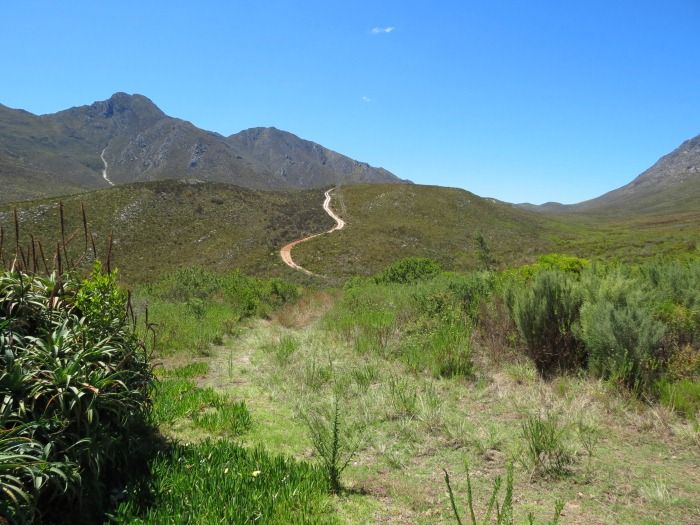
And looking back down from that hill – you see the kraal, the hut in the distance as well as the big tree.
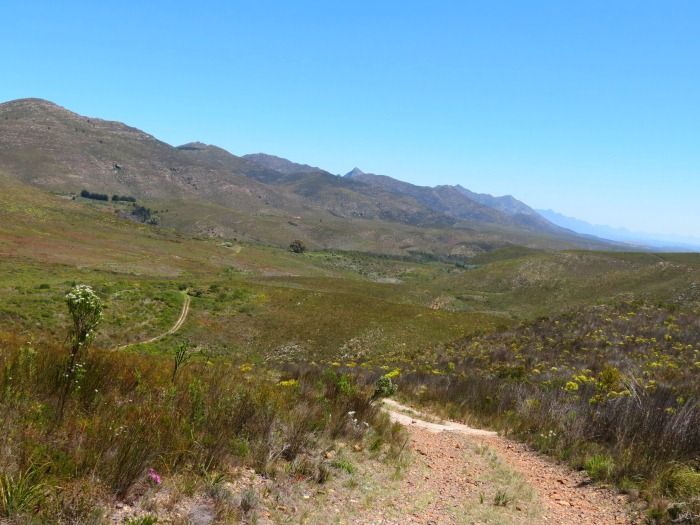
Zoomed in on the Kraal:
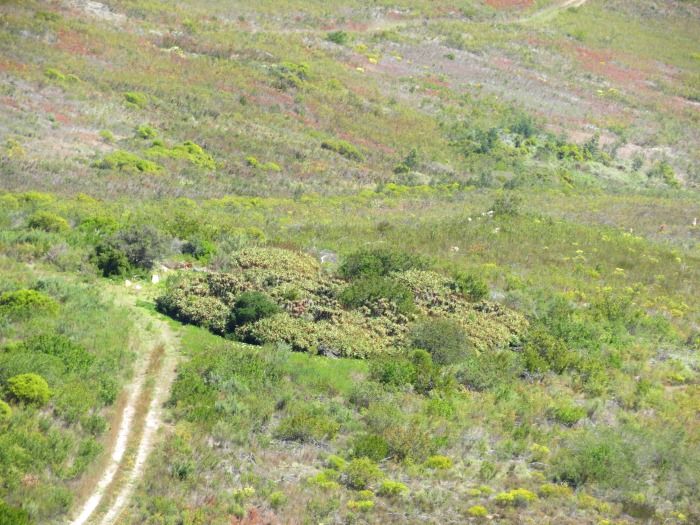
And the view back from further up – a nice view along Attaquas Kloof:

But we are not on top yet!

The view once you reach the summit is breathtaking. You can see all the way to the ocean:
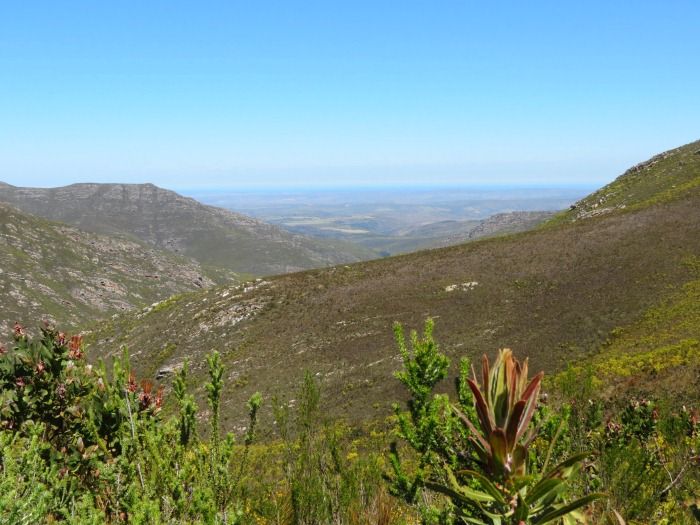
Thick vegetation as you start to decend on the Northern side:

This is where you find a small block house / fort that was built by the English during the Anglo-Boer War.
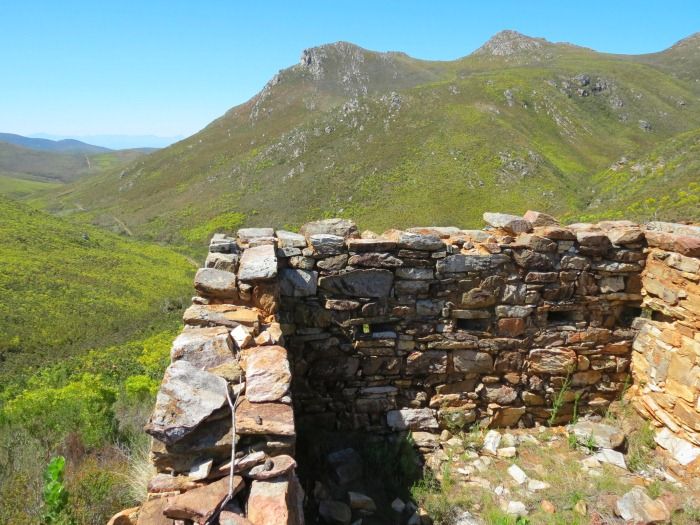
As was the case with Gysmanshoek Pass, the Boer's knew about all these little abandoned passes in the area, so they had to be guarded.

This fort was perfectly placed to guard this pass, with a perfect view on anyone coming up this road.
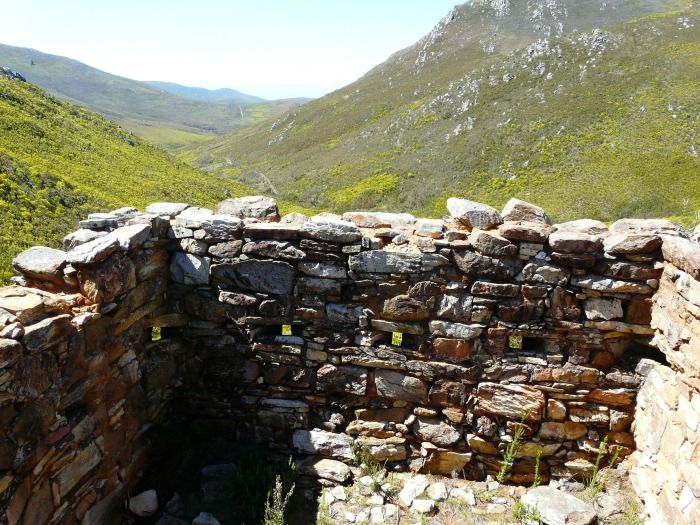


Of course in 1901, while the Anglo-Boer War was raging, this pass has been in disuse for over three decades already. This fort never saw any action (or maybe they just never saw the Boers?).
The last stretch towards “Channa Land”:

This trail sees little traffic.

Another monument in honour of the Voortrekkers:

And exiting the reserve, into the Klein Karoo plains.
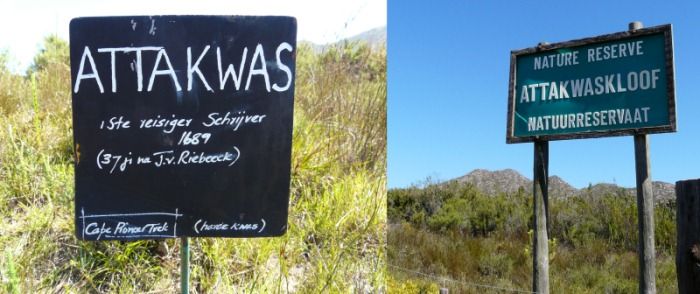

On this side of the pass you find the remains of yet another settlement. This spot had an hotel and general dealer, a perfect stop for travellers before crossing the mountain en route to Mossel bay.
Sadly not much is known today about this settlement. It is situated on the farm Saffraanrivier and the old hotel was apparently called "Die Bonthuis". Rumour has it that there was a murder here and one of the owners hung himself from a tree in front of the hotel, but there are no documented proof of this (that I know of). Sue van Waarts mentions this in one of her books (I am trying to get my hands on a copy). Another writer, Michelle Thompson Raubenheimer, is writing a book on the Raubenheimers of the George/Oudtshoorn area and the farms they lived on. The Raubenheimer family owned Saffraanrivier in the 1800's. I am waiting with bated breath to see what else she unearths.
What remains today:
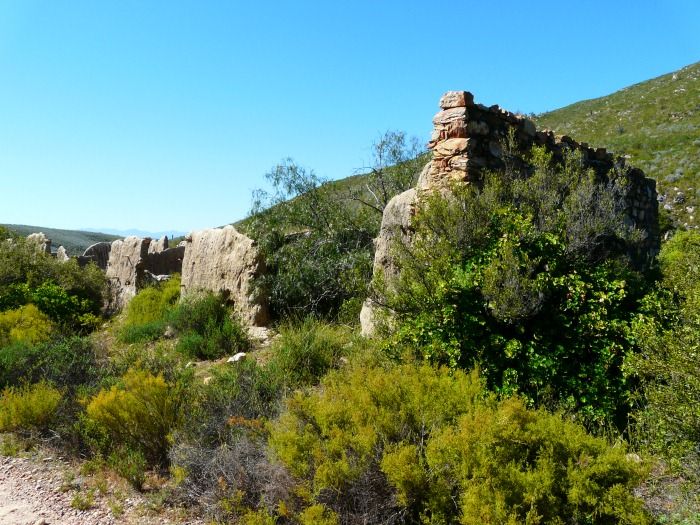

This must be a very old building, build with stone, clay and rubble.
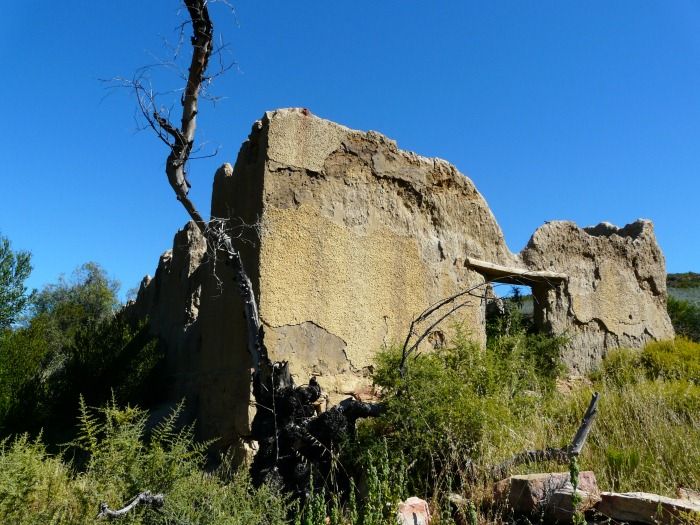
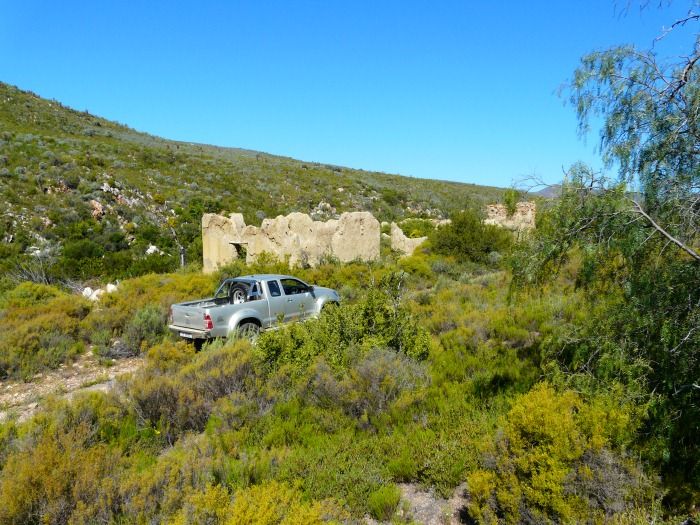
The building next to it seems more modern in comparison and must have been build much later.
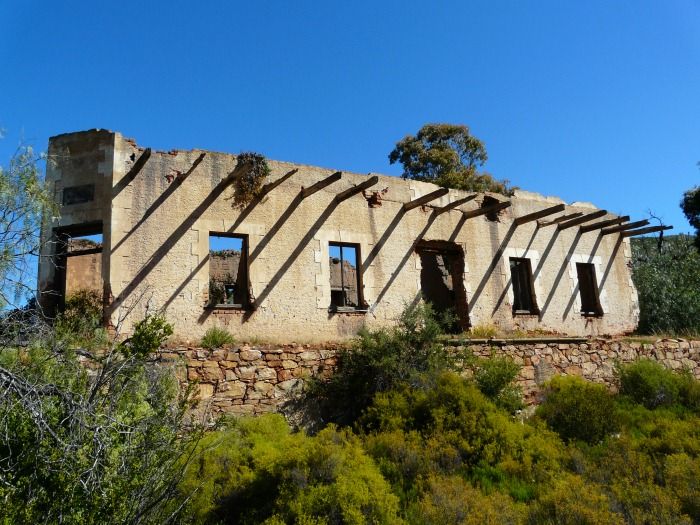
The door on the corner with the plaque above reminds me of the old General dealers? The building style and the block decoration around the windows seems newer? A door that has been closed up in later alterations is also visible.

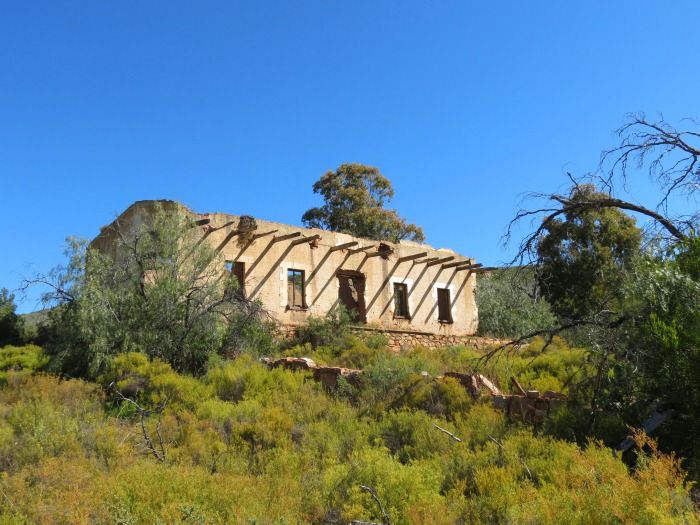
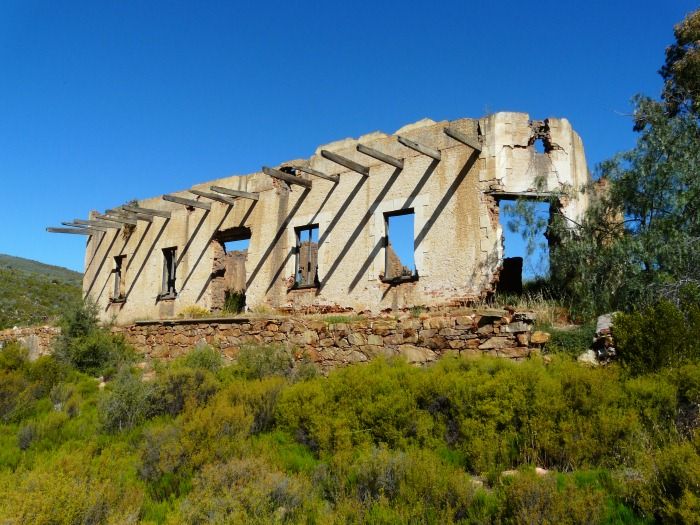
This building had a big courtyard in front, presumable for the parking and loading of ox wagons and such.
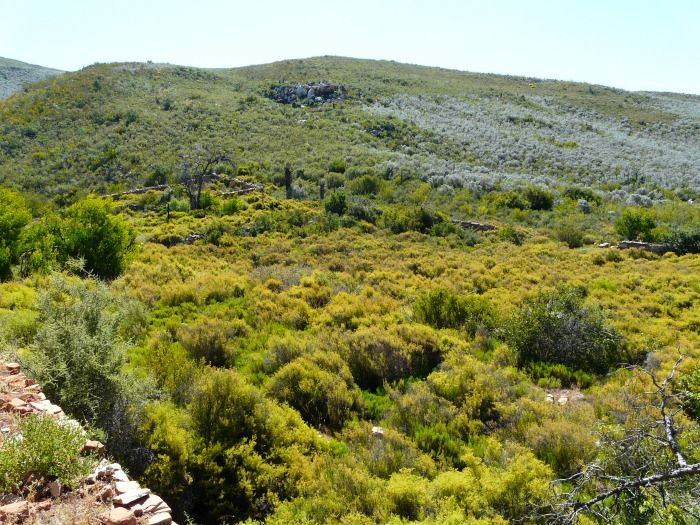
Another old building on site:
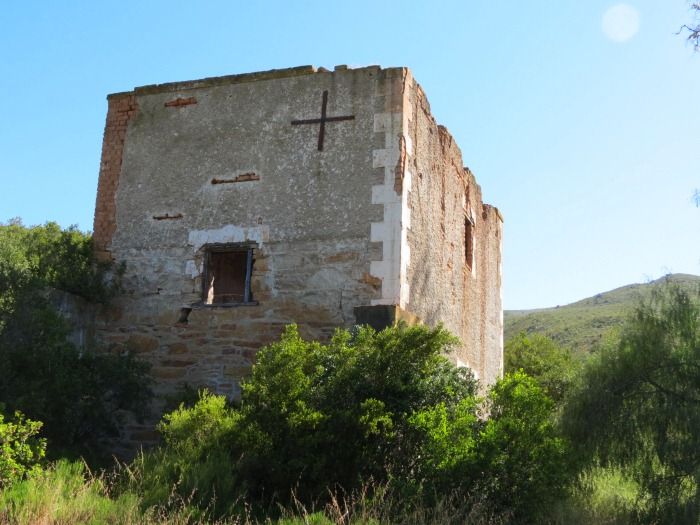
This building was also build with stone, but a second story was added with bricks later.
It's fascinating to walk around these old settlements and imagine the daily hustle and bustle that went on here. And today there is nothing but ruins. Such is the way of progress.
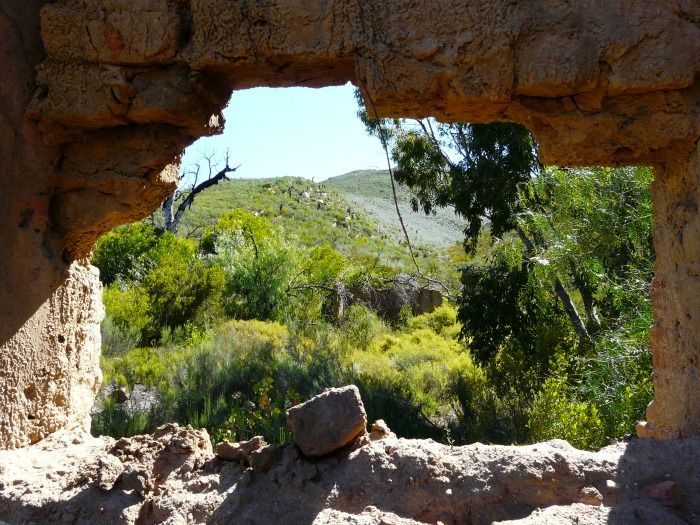
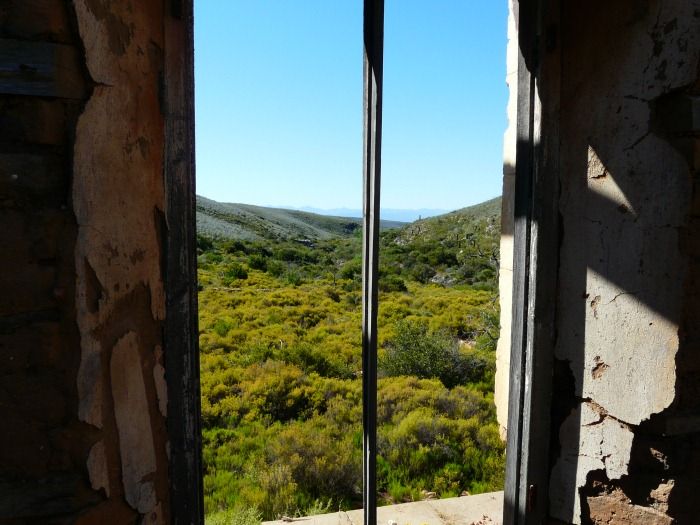
Attaquas Pass crosses the mountains a mere six kilometres West of present-day Robinson Pass and this route exits on Robinson pass at S33 49.079 E22 02.314
Some scenery on the way out:
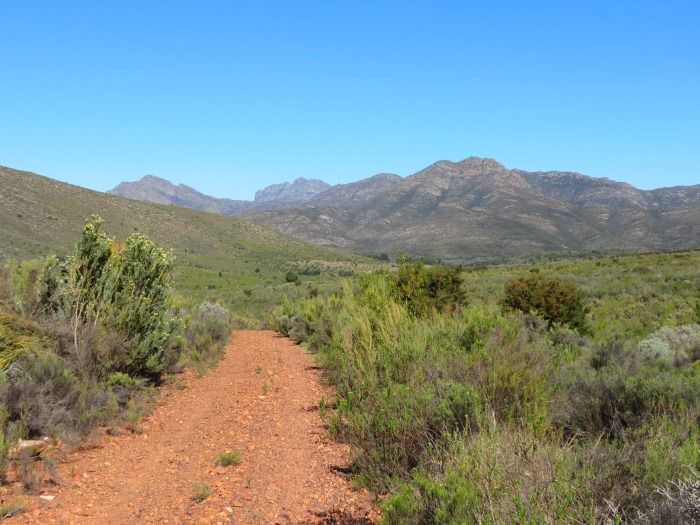
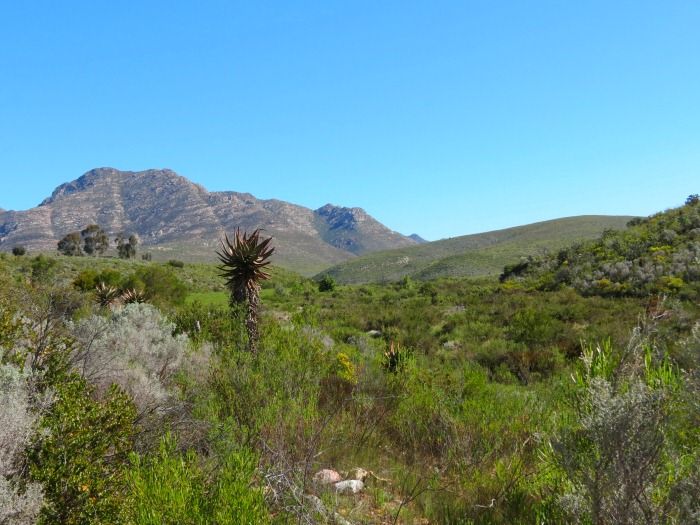
The whole route (as well as the other 4x4 trails) are mapped on the Tracks 4 Africa maps.
For more information on this route contact Nico and Danette Hesterman of Bonniedale
Holiday Farm on 044-695 3175; e-mail: bonniedale@mweb.co.za or look at their website: www.bonniedale.com


.
No comments:
Post a Comment